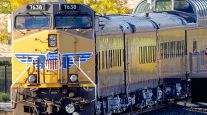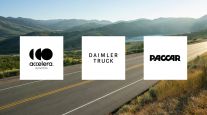Staff Reporter
Paccar Sales, Parts Unit Push Quarterly Profit to Record
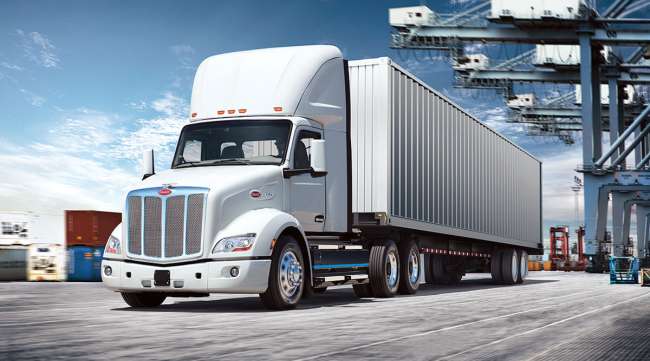
[Stay on top of transportation news: Get TTNews in your inbox.]
Paccar Inc. posted record quarterly income in the three months that ended June 30, beating analyst estimates as profits across some of the company’s divisions reported healthy year-over-year gains.
Bellevue, Wash.-based Paccar saw a 70% year-over-year increase in Q2 net income, jumping to $1.22 billion, or $2.33 per diluted share, compared with $720.4 million, or $1.37, in the same period a year earlier, the company said July 25. Paccar is the parent of truck manufacturers Kenworth and Peterbilt.
Paccar’s net sales and financial services revenue totaled $8.88 billion in the most recent quarter, some 24% above the $7.16 billion of the year-ago period, it said.
The consensus estimate for Paccar’s Q2 profit was $2.14 per share, according to Zacks Equity Research. The truck maker also beat analyst estimates in Q1 2023.
Paccar Parts posted pretax Q2 income of $419.3 million, 19% higher than the $353.3 million earned in the same period last year. The parent company did not provide post-tax details for the unit. The aftermarket parts distribution unit turned in Q2 quarterly revenue of $1.60 billion, 11% above the $1.43 billion posted in the same period last year.
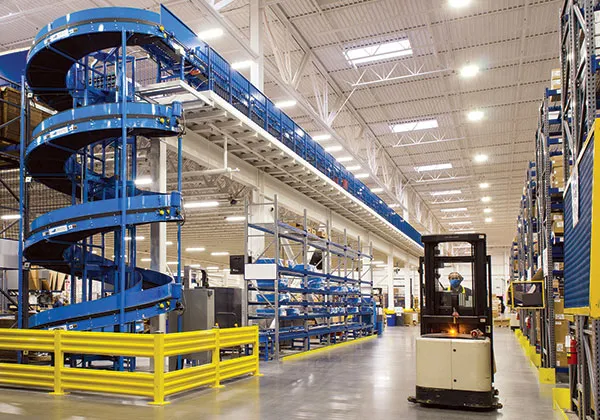
A Paccar Parts distribution center. Paccar's aftermarket parts distribution unit turned in second-quarter revenue of $1.60 billion, 11% above the same period last year. (Paccar)
Underlying truck deliveries also increased, prompting Paccar to boost its North American Class 8 sales forecast for 2023.
The company’s new truck deliveries in the U.S. and Canada during Q2 totaled 26,000, compared with 20,700 in the year-ago period. The total matched that of the first quarter of 2023. Globally, truck deliveries totaled 51,900, an 11% year-over-year increase and in line with company guidance of 51,000 to 54,000 vehicles.
The company expects Q3 deliveries of between 48,000 and 52,000 trucks, Chief Financial Officer Harrie Schippers said during a Q2 earnings call.
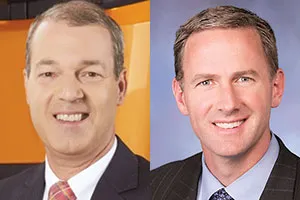
Schippers (left) and Feight
Paccar is in a great place with full order books for 2023, CEO Preston Feight said, and he expects markets to be healthy through the rest of 2023. Some sectors are expected to be exceptional in terms of demand for the rest of the year, including the less-than-truckload segment and vocational vehicles, he said.
That continued demand strength saw Paccar raise its 2023 Class 8 industrywide retail sales expectations in the U.S. and Canada to a range of 290,000-320,000 trucks from a range of 280,000-320,000 trucks in the company’s previous earnings release.
Paccar’s viewpoint largely agrees with that of the first of North America’s largest Class 8 truck makers to report earnings. Volvo Group boosted its forecast July 19 for overall North American heavy-duty truck sales in 2023 by 10,000 vehicles to 330,000.

How effective have third-party services proved to be for fleets? Let's find out with Michael Precia of Fleetworthy Solutions and Dan Rutherford with Summit Virtual CFO by Anders. Tune in above or by going to RoadSigns.ttnews.com.
Bank of America Securities Research Analyst Michael Feniger said in a July 25 note that bright spots in the Paccar results included cost control, a pretax truck margin of 13.9% versus the investment bank’s 13% estimate and increased sales expectations in the U.S. and EU for 2023.
During the earnings call, Feight said supply chain improvements would provide a “modest tailwind” for Paccar in 2024. “Truck markets are expected to remain healthy,” he said.
Paccar’s top executive also said that the company would offer multiple technology platforms going forward but noted that it is too early to say which one would win out. Feight stressed that while he expects internal combustion engines to remain in use for some decades, he noted strong interest in the company’s battery-electric vehicles. Still, he stressed that the U.S. needs more charging infrastructure. Paccar also plans to offer hydrogen fuel cell and clean diesel product lines moving forward, he said.
Want more news? Listen to today's daily briefing above or go here for more info
“We will meet any customer demand,” Feight said. “We could not be more excited about these technologies and what they mean for Paccar.”
Analysts quizzed executives during the call on the prospects for the company’s recently announced hydrogen fuel cell joint venture with Toyota. Feight said there has been strong order interest in what the partnership will offer, and Paccar expects the first deliveries by the joint venture in 2024. He added that those numbers would be in the hundreds.


